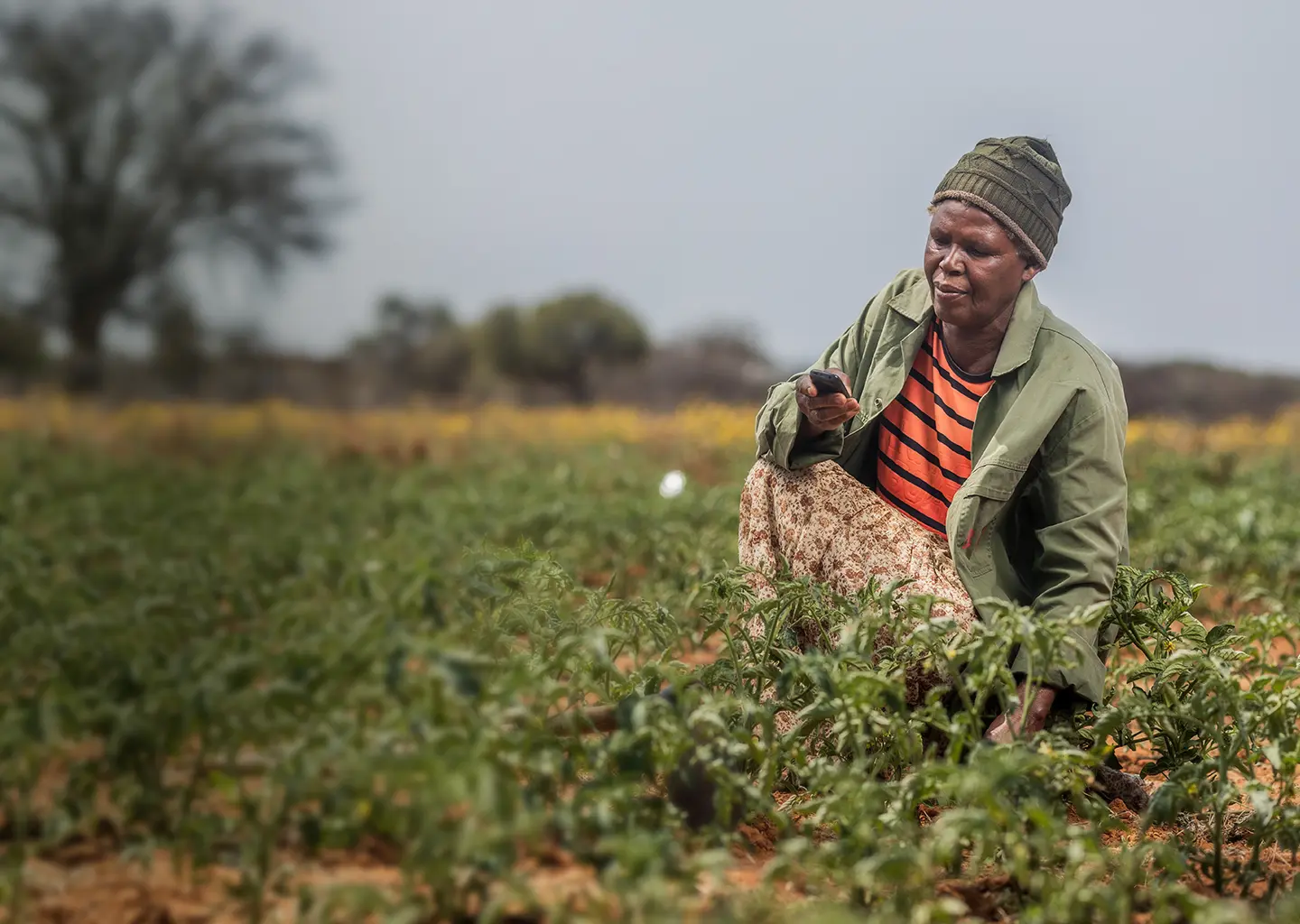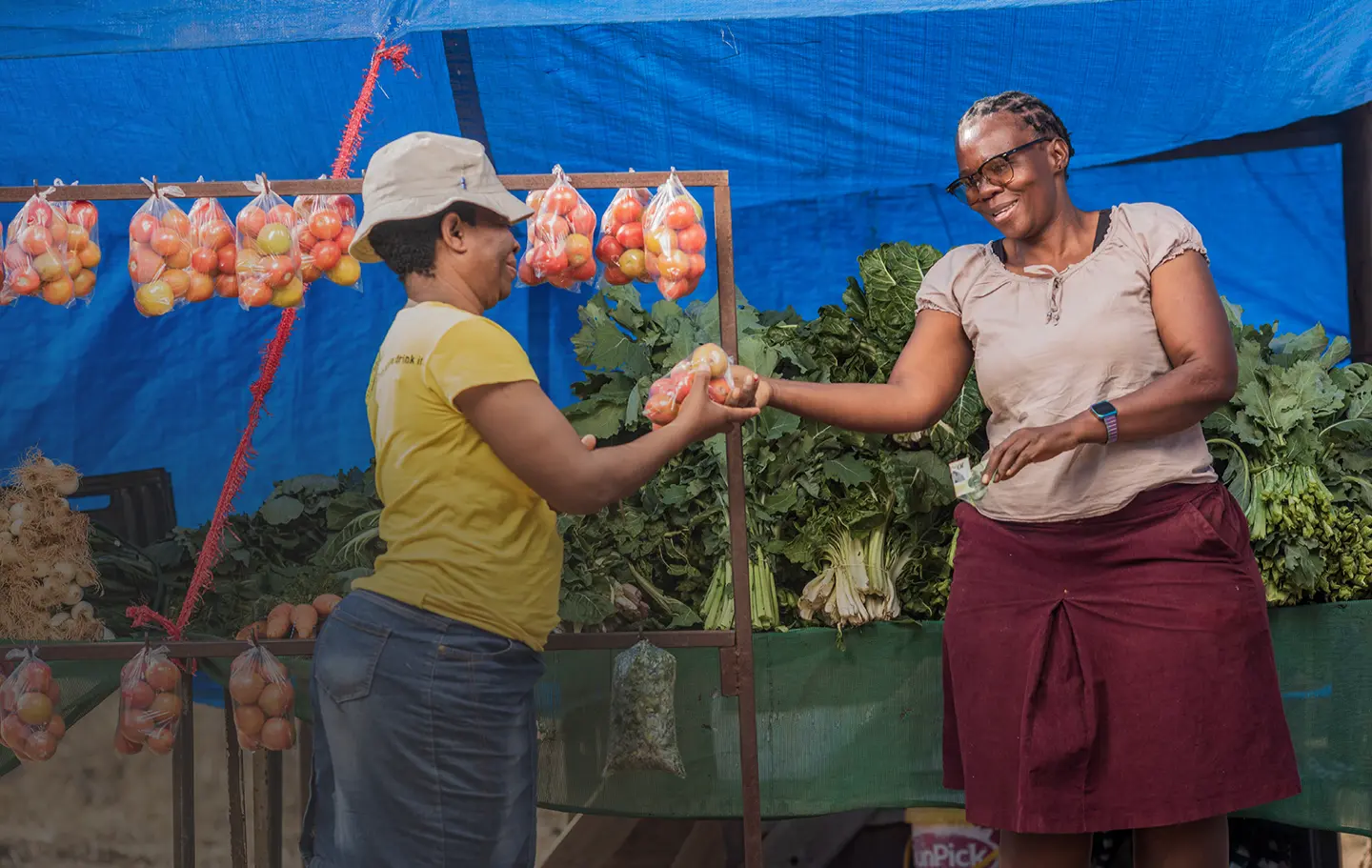Africa’s digital economy is expanding, and technology use is improving. However, the digital divide is expanding throughout Africa. Agriculture is vital for meeting basic human needs, including food production. A significant portion of the African population relies on agriculture for their daily sustenance. It’s not just an economic sector but a lifeline for millions of people who depend on farming for food and income. Considering agriculture being the single most significant economic activity, initiatives to empower smallholder farmers will necessitate solutions that address a lack of knowledge.
Botswana is one of the most rapidly developing African nations, with a robust economy and a 5.8% GDP growth rate in 2022. Yet a significant challenge remains: bridging the digital divide that separates urban and rural areas.
A report from the Botswana Communications Regulatory Authority (BOCRA) reveals that only 10% of rural households have internet access, compared to 40% in urban areas. Agriculture currently contributes 2% of GDP, and farmers rely on it for subsistence and improving their quality of life. What could Botswana’s agricultural sector look like with more digital inclusion of farmers? How could those farmers’ lives and livelihoods improve? With access to crucial information, farming communities produce better yields and output, increasing their household incomes and contributing to a growing GDP for Botswana.
Challenges Farmers Face

Escalating Input Costs
The cost of agricultural inputs, primarily sourced from neighboring South Africa, has been steadily rising over the years. Unfortunately, there has been no direct intervention to alleviate this financial burden. Inputs such as fertilizers and pesticides, vital for crop health and productivity, have become increasingly expensive, leaving farmers grappling with tighter budgets.
Unpredictable Weather Patterns
The majority of smallholder farmers cultivate their crops in open fields, which leaves them susceptible to unpredictable and extreme weather conditions. This vulnerability forces farmers to stagger their planting across different seasons so they can limit their risk exposure, a practice that limits their productivity and isn’t sustainable in the long run.
The Predicament of Market Prices
Farmers, especially smallholders who have less bargaining power and operational footprint, also struggle to sell their crops profitably.
Big Chain Supermarkets/Stores: While these retail giants buy in bulk, their pricing model favors their own bottom line. This leaves farmers with meager profits, barely able to break even.
Small Retailers: Smaller retailers offer slightly better prices, but buy in lower volumes and can be unreliable due to limited storage facilities.
Consumers: The potential consumer market is promising, but individuals often cannot visit farms for small household purchases, leading them to rely on big chain supermarkets.
A Path Forward
Drip Irrigation and Government Support
Innovative drip irrigation systems enable farmers to efficiently water their crops. Additionally, the government plays a crucial role in providing recycled water, supporting sustainable farming practices.
The Vision for Botswana’s Farmers
An ideal future for Botswana’s farmers would include:
● Affordable Inputs: Lower input prices or more flexible pricing options.
● Weather Mitigation: Solutions like greenhouses or crop insurance to manage weather-related risks.
● Fair Market Prices: The ability to sell products directly to consumers at competitive prices.
The Need for a Farming Community
Farmers in Botswana also lack a proper community where they can engage effectively. They expressed concerns about planting the same crops simultaneously, leading to market saturation and waste. A shared platform that could alert farmers about who is planting what, would help promote better crop diversity.
Brastorne’s Impact

An Impactful Future for Botswana’s Farmers
At Brastorne, we believe that with technology that promotes digital inclusion, Botswana’s farmers can overcome these obstacles and thrive. Our mAgri platform connects the unconnected, empowering farmers to secure affordable inputs, mitigate weather risks, and access fair market prices.
The USSD platform, designed for users who lack data plans or smartphones, provides farmers with essential training information, a marketplace, weather information, price tracking, and access to farming communities for just $1.40/month, an 85% cost savings compared to alternatives. And we’re continuing to innovate, with a mobile mAgri app currently in development that aims to consolidate all these features into one platform, ensuring that farmers receive fair value for their products and consumers can access affordable prices.

